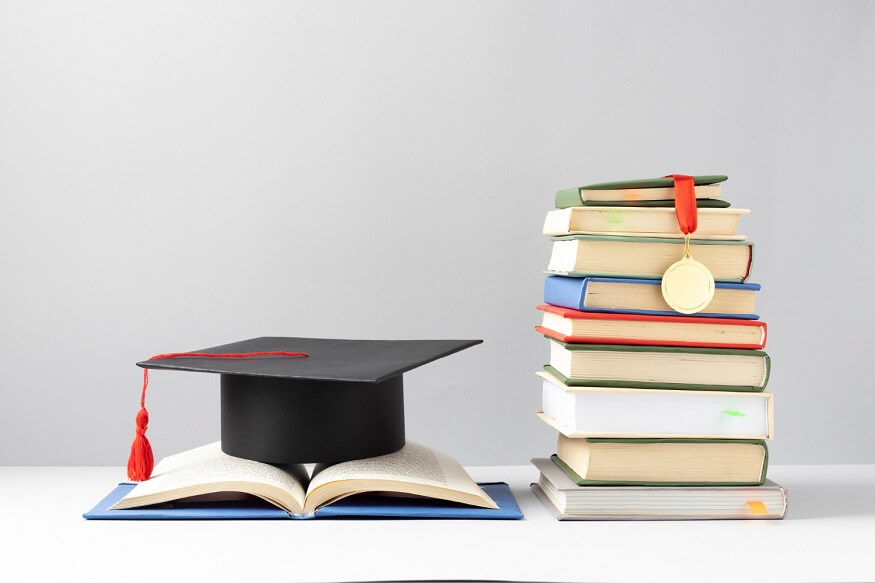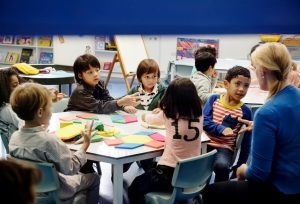Menu
The Crucial Role of Secondary Education for Kids

Education is the cornerstone of personal and societal development, shaping the minds of individuals and laying the foundation for a prosperous future. While primary education sets the stage for a child’s academic journey, secondary education emerges as a critical phase that significantly influences their intellectual, social, and emotional growth. Secondary education bridges the gap between the fundamental skills acquired during primary school and the specialized knowledge needed for higher education or vocational pursuits. It is a crucial juncture where students are exposed to a broader range of subjects, allowing them to explore their interests and aptitudes in greater depth.
Secondary education is important because it encourages collaboration, critical thinking, and problem-solving – skills that are indispensable in navigating the complexities of the adult world. Students not only engage with a diverse array of subjects but also interact with peers from various backgrounds, learning the values of teamwork, tolerance, and cultural understanding.
Importance of Secondary Education: All You Need to Know
The need and importance of secondary education can be summarized in five key points:
- Foundation for Higher Learning: Secondary education lays the foundation for advanced academic pursuits and specialized knowledge. It equips students with fundamental skills in subjects such as mathematics, science, and literature, creating a solid base for future academic and career endeavors.
- Critical Thinking and Problem-Solving: This stage of education fosters critical thinking and problem-solving skills. Students engage in more complex and analytical subjects, encouraging them to think independently and approach challenges with creativity. These skills are essential for navigating the complexities of both personal and professional life.
- Preparation for Specialization: Secondary education provides students with the opportunity to explore different subjects and identify their areas of interest. This exploration is crucial in helping them make informed decisions about future specialization and career paths. Exposure to a variety of subjects widens their perspectives and enhances their adaptability.
- Social and Emotional Development: Beyond academics, secondary education plays a vital role in the social and emotional development of students. Interaction with peers, participation in extracurricular activities, and exposure to diverse perspectives contribute to the development of interpersonal skills, teamwork, and emotional intelligence.
- Global Citizenship and Lifelong Learning: Secondary education instills a sense of global citizenship by exposing students to diverse cultures, histories, and global issues. It promotes an understanding of interconnectedness and fosters a commitment to contributing positively to society. Additionally, it cultivates a mindset of lifelong learning, encouraging individuals to continuously seek knowledge and adapt to an ever-evolving world.
Secondary Education for Kids: How It Benefits the Students
The importance of secondary education plays a pivotal role in a child’s development, offering a multitude of benefits that extend beyond the confines of the classroom.
- Holistic Development
- Skill Acquisition
- Enhanced Career Opportunities
Academic Excellence: Secondary education forms the bedrock for academic achievement. It provides students with a deeper understanding of various subjects, fostering critical thinking and analytical skills. The structured curriculum equips them with the knowledge needed for higher education, enabling a smooth transition to advanced learning.
Social and Emotional Growth: Beyond academics, secondary education nurtures social and emotional intelligence. Interactions with peers and educators contribute to the development of communication skills, empathy, and teamwork. These formative years provide a platform for students to navigate the complexities of relationships, a skill crucial in personal and professional life.
Critical Skills for the 21st Century: Secondary education is instrumental in cultivating skills like problem-solving, creativity, and digital literacy. These skills are indispensable in a world where adaptability and innovation are highly valued.
Specialized Knowledge and Vocational Training: Secondary and higher secondary education also caters to diverse interests and talents. Through specialised courses and vocational training programs, students can explore and develop skills in specific fields, whether it be in science, arts, or technical vocations. This not only broadens their horizons but also prepares them for a variety of career paths.
Impact on Future Job Prospects: Completion of secondary education significantly enhances future job prospects. Many professions and industries require a minimum educational qualification, and secondary education ensures that individuals meet these standards. It opens doors to a wider array of career opportunities, providing a competitive edge in the job market.
Economic Empowerment through Education: Education is a powerful tool for economic empowerment. Secondary education for kids equips individuals with the skills and knowledge needed for higher-paying jobs, breaking the cycle of poverty. A well-educated workforce contributes to economic growth by fostering innovation and productivity.
Challenges in Secondary Education: An Overview
Secondary education faces multifaceted challenges globally. Inadequate resources, including qualified teachers and modern facilities, hinder effective learning experiences. Socioeconomic disparities create unequal access, exacerbating educational inequities. Outdated curriculums often fail to equip students with relevant skills for a rapidly evolving world. Additionally, high dropout rates and disengagement plague secondary education systems. The digital divide further widens educational gaps, hindering students’ ability to adapt to technological advancements. Addressing these challenges requires comprehensive reforms, increased investment in education infrastructure, and a focus on inclusivity to ensure that all students receive a quality secondary education, setting the foundation for their future success.
Innovations and the importance of secondary education for kids are transforming traditional learning approaches. Billabong High International School is a torchbearer of such progress, embracing cutting-edge methodologies. It fosters critical thinking and creativity by integrating technology, personalised learning plans, and project-based assessments. Billabong High’s forward-thinking curriculum emphasises practical skills, preparing students for a rapidly evolving world. Blending virtual and experiential learning, these innovations cater to diverse learning styles, promoting holistic development.





